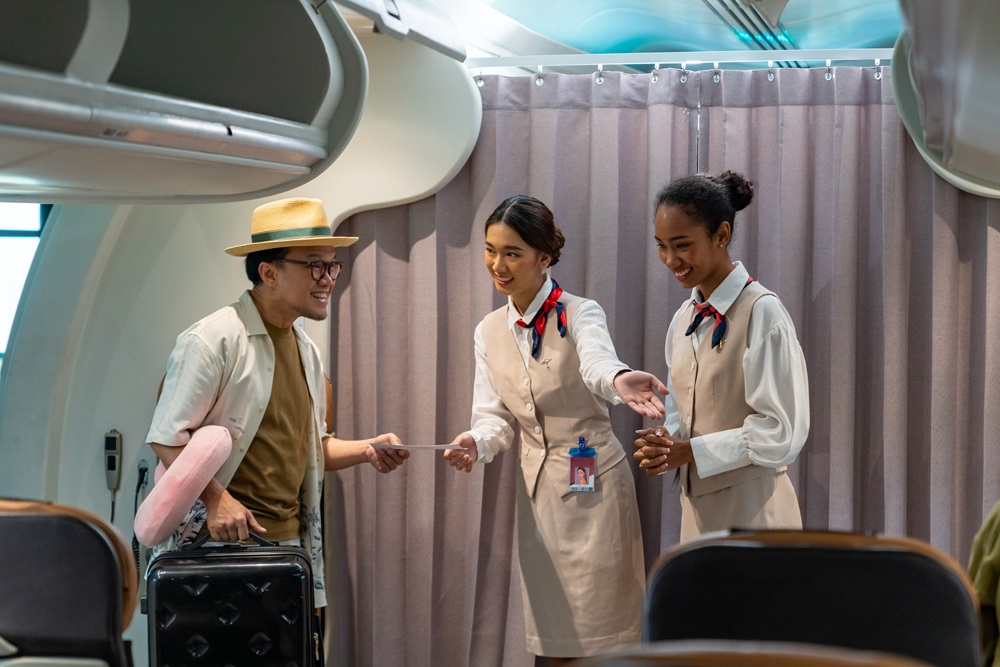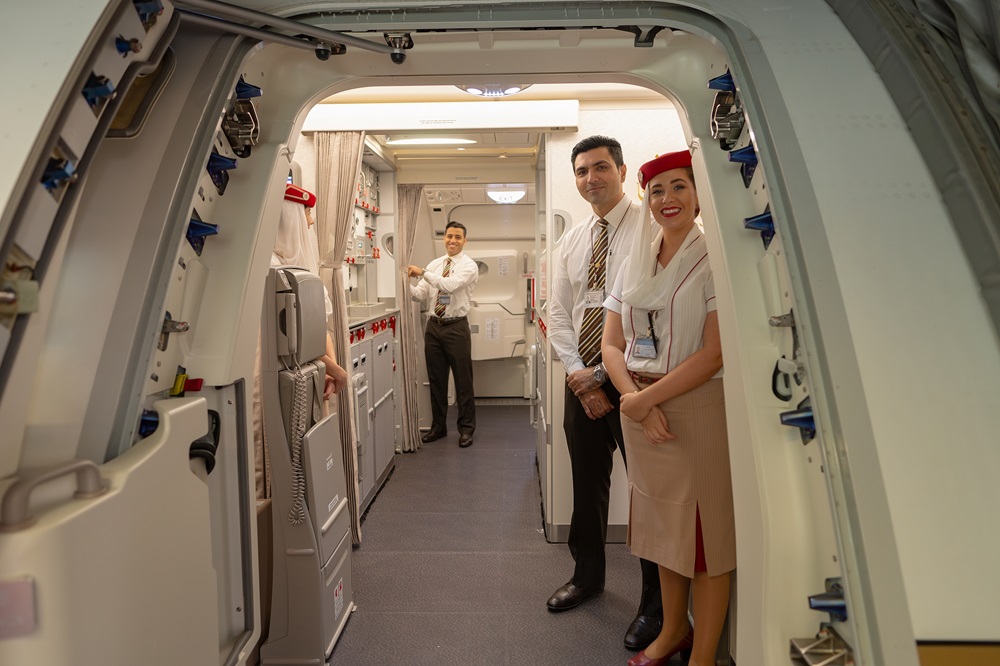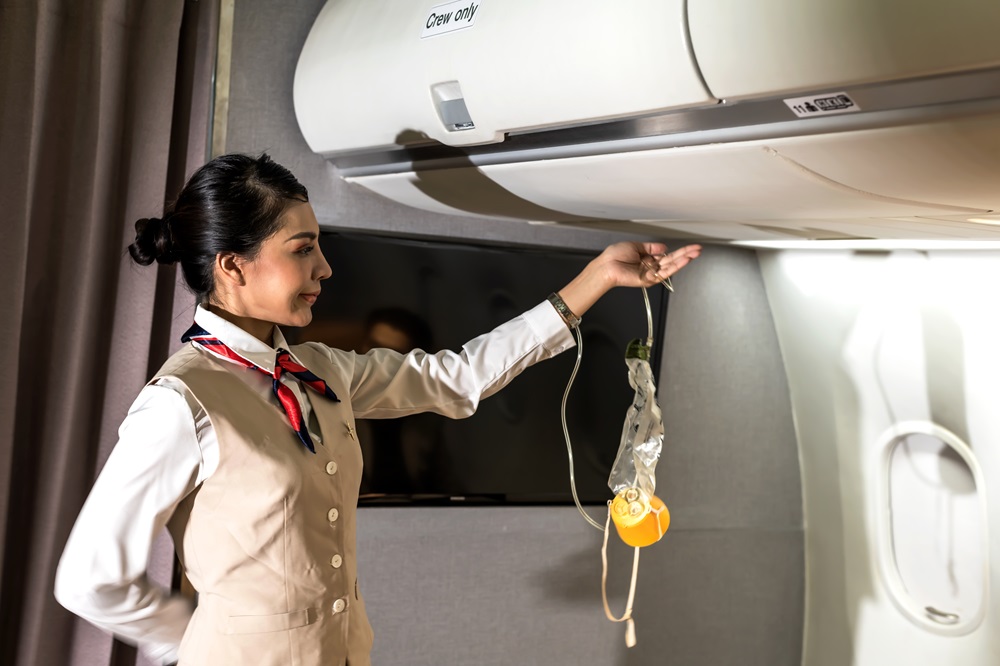In our increasingly globalized world, have you ever wondered how the role of a flight attendant has changed? It is no longer just about serving drinks or ensuring passenger safety. What if you could offer much more? Imagine being a flight attendant who speaks multiple languages. How would that enhance your career and the passenger experience?
In this article, we will dive into the top 10 advantages of being a multilingual flight attendant. Curious about how mastering several languages could open doors to exciting new opportunities? Want to know how it can elevate your professional profile in the aviation industry? Get ready to discover how being multilingual could transform your career and offer you a dynamic and rewarding experience in the skies.
Table of Contents
1. Enhanced communication skills
One of the most significant advantages of being a multilingual flight attendant is the ability to communicate effectively with passengers from diverse backgrounds. Language skills are among the most important attributes every cabin crew member should possess.
Why it matters:
- Customer service excellence. Multilingual flight attendants can address passengers’ needs directly in their native language. This ability significantly enhances the overall passenger experience.
- Conflict resolution. Effective communication can prevent misunderstandings and resolve conflicts more efficiently, leading to smoother in-flight interactions.
Imagine a flight from New York to Madrid. A flight attendant who speaks Spanish can help Spanish-speaking passengers with ease. They can explain safety procedures, answer questions about in-flight services, and provide updates on delays or changes — all in Spanish. Passengers feel more relaxed and valued. They are likely to see the airline in a positive light, leading to greater satisfaction and loyalty.
Now, picture a flight from San Francisco to Beijing. A flight attendant fluent in Mandarin can assist Chinese passengers smoothly. They can provide clear instructions on meal options, help with the in-flight entertainment system, and handle special requests — all in Mandarin. By speaking their language, the flight attendant avoids confusion and ensures that passengers get the help they need without any language barriers.
2. Expanded career opportunities
Passing an English language test is a crucial step and one of entry requirements for any flight attendant seeking acceptance by an airline. However, knowing multiple languages can significantly broaden career opportunities within the aviation industry, unlocking a wider array of roles and possibilities.
Why it is important:
- Diverse job roles. Airlines often seek multilingual candidates for various positions. This includes roles on international routes, customer service, and management.
- Promotions and transfers. Airlines frequently consider multilingual cabin crew members for promotions or transfers. This can lead to exciting opportunities on international routes or in different offices.
For instance, imagine a flight attendant fluent in French. This skill could lead to opportunities with airlines that frequently fly to Paris or other French-speaking destinations. They might also land roles in customer service or management positions within these airlines.
Or picture cabin crew members who speak Japanese. They could find roles with airlines that operate in Japan or have strong connections there. This could include positions on international flights to Tokyo or roles in the airline’s Tokyo office.
3. Competitive edge in hiring
In a competitive cabin crew job market, multilingual skills can significantly enhance your attractiveness to potential employers.
Here are some advantages of being a multilingual flight attendant:
- Stand out from the crowd. Multilingual flight attendants have a distinct advantage over monolingual candidates, as they can meet the needs of a broader customer base.
- Higher demand. Airlines prioritize candidates who can cater to passengers from various linguistic backgrounds, making multilingual flight attendants more desirable.
According to the International Air Transport Association (IATA), airlines increasingly seek employees who can handle the demands of a diverse clientele, making multilingual skills a valuable asset!
4. Improved passenger safety
How does being multilingual boost passenger safety? Multilingual cabin crew play a key role in making sure everyone on board understands critical safety instructions.
Why it matters:
- Clear instructions. Passengers who understand safety protocols are more likely to follow them, which can be crucial in emergency situations.
- Comprehensive coverage. What happens when flight attendants speak multiple languages? They can make sure that all passengers get crucial safety information in their preferred language. This means everyone knows what to do in case of an emergency.
Think about a flight with passengers speaking English, Spanish, and Japanese. During the safety briefing, a multilingual flight attendant can explain emergency procedures in all these languages. This ensures that every passenger understands what to do, helping to keep everyone safe and secure during the flight.
5. Greater cultural sensitivity
Ever seen those awkward moments on a flight where misunderstandings lead to a funny or frustrating situation? Picture this: a flight from New Delhi to Sydney. A flight attendant tries to offer a vegetarian meal to a passenger from India who only speaks Hindi. The passenger, not understanding the menu in English, starts excitedly gesturing about how they hope it is vegetarian. The cabin crew member, seeing the confusion, calmly switches to Hindi and reassures the passenger. What could have been an awkward moment turns into a relief-filled smile!
How do language skills make cabin crew’s daily duties easier?
- Respect for diversity. Multilingual flight attendants are better equipped to navigate cultural nuances. They can interact respectfully with passengers from different backgrounds.
- Enhanced interaction. Cultural sensitivity leads to more meaningful and positive interactions with passengers. Cabin crew who speak multiple languages, understand and respect various cultural quirks and communication styles. They can smoothly navigate those differences and ensure everyone feels respected.

6. Increased flexibility and adaptability
Imagine a flight attendant who can switch languages faster than a magician who pulls rabbits out of a hat. One moment they are chatting in Italian. Next, they explain flight details in Arabic. Speaking multiple languages is not only impressive. It enhances a cabin crew’s flexibility and adaptability in all sorts of scenarios.
What makes this essential:
- Handling diverse situations. Ever seen a flight attendant who can change from casual banter to serious instructions faster than you can say “jet lag”? Multilingual flight attendants can adjust their communication style to fit passengers from all corners of the globe. Need help with your seatbelt in Spanish? No problem. Want a snack recommendation in Japanese? They have got you covered!
- Operational efficiency. Picture this: a passenger asks for a drink in Italian, another requests a blanket in Turkish, and yet another is confused about the safety instructions in Estonian. A multilingual flight attendant tackles all these requests with ease, making the flight run as smoothly as a perfectly brewed cup of coffee.
7. Enhanced problem-solving skills
When flight attendants speak multiple languages, they often become experts at tackling tricky situations and overcoming communication hurdles.
Why it is useful:
- Quick fixes. Imagine this scenario onboard: two passengers, one speaking French and the other speaking Japanese, have a mix-up over their seats. A flight attendant who can speak both languages steps in. They quickly sort out the seating arrangement, translating and calming both passengers. The issue is resolved swiftly, and everyone is happy.
- Creative solutions. Picture this: a flight attendant facing a tangled mess of cultural and language barriers. Their multilingual abilities spark innovative ideas and solutions. From finding an extra pillow to fixing a booking error, they navigate these obstacles with flair and creativity.
8. Opportunity for international travel
Multilingual cabin crew members get to turn their duties into a world tour! Their ability to communicate across borders opens up amazing chances to explore different cultures and countries while they work.
Here is the scoop:
- Cultural adventures. Imagine working on flights that take you from Tokyo to Paris, then to Rio de Janeiro. Multilingual flight attendants can dive into diverse cultures, try out local cuisines, and pick up new languages — all while on the job. It’s like getting a front-row seat to a global adventure.
- Travel perks. Airlines often offer awesome travel benefits and discounts. So, when flight attendants are not busy flying, they can take advantage of layovers to explore new cities or enjoy discounted travel to exotic destinations. It’s a built-in perk for those with a passion for travel.
This blend of global exposure not only makes every workday an adventure but also boosts personal growth and cultural savvy.
9. Stronger relationships with colleagues onboard
Ever wondered how speaking multiple languages can make a flight attendant’s workday more enjoyable? Language skills can really spice up relationships with your colleagues, especially in a multinational team.
Why it matters for cabin crew:
- Team bonding. Flight attendants often work with colleagues from all over the globe. Speaking their languages helps them to communicate more smoothly. This builds a stronger team spirit and makes working together a breeze.
- Networking perks. Connecting with a diverse team can open doors to exciting professional opportunities. Flight attendants make valuable contacts and discover potential collaborations that could take your career to new heights.
Effective communication in a multicultural environment creates a supportive, friendly workplace where everyone feels valued and understood.

10. Personal fulfillment and growth
Finally, let’s talk about the incredible personal perks of being multilingual. Do you know what Language skills bring to a flight attendant’s daily life?
- Sense of achievement. Imagine mastering several languages and using them while flying around the world. That is a huge personal win for every cabin crew member! Every time they use a new language with passengers, they are hitting a new personal milestone.
- Continuous learning. Being multilingual means a flight attendant is always picking up new things. Whether it is learning a new word or understanding a new culture, they are constantly growing. It is like a never-ending adventure of self-improvement. It also boosts their self-esteem.
On flights, especially international routes, where passengers speak a mix of languages and have a range of needs, language flexibility is pure gold. It is like having a superpower that turns potential language chaos into a seamless, smooth experience. So next time you see a flight attendant juggling languages, just remember — they are making every flight smoother and maybe even a little magical!

